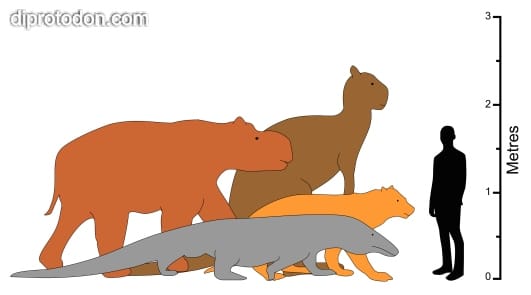We’ve just been caving. Wow! I normally rave about the life under the soil being so amazing (it is!), but today its about the rock formations. Under the surface of the earth is an incredible world. Like many children (and adults), our kids love rocks and geology – so caving was a great opportunity to further feed that natural interest and see things from another perspective. I was absolutely fascinated too.
 |
| The crocodile and the fairy pools in the Fairy Cave in Buchan, Victoria. |
 |
| The keen earth scientists down the cave. |
Buchan Caves, not far from where we are right now, in East Gippsland (Victoria, Australia), is a 4 km network of limestone caves containing spectacular stalactites, stalagmites, pillars and other formations. The limestone rock at Buchan was laid down during the Devonian period about 300 – 400 million years ago. These caves themselves are up to 20 million years old. The Buchan Caves Reserve was handed back to the people of the Gunaikurnai Nation who manage it in conjunction with Parks Victoria.
Buchan and it’s surrounds are one of the most significant caving areas in Victoria – with over 1000 caves in total. A few of them are open to novices like us. They are not particularly long or deep, but they are highly decorated, making it a world-class caving experience.
 |
| Mum and Dad came caving too. |
Calcium carbonate is the basis of the limestone formations in the caves, which comes from the shells and coral that were deposited here when the sea still covered this part of Gippsland. You can see seams of the shells in certain passageways .
 |
| Seams of shells in the cave passageways. |
We ventured into the Fairy Cave yesterday for a guided tour with informative Ranger Ben. The cave was about 400m long and went down to about 55m in depth. Inside it was constantly cool – around 17 degrees celsius – a welcome retreat from the summer heat.
 |
| ‘Drinking straws’ – the beginnings of stalactites. |
We learnt that the stalactites and stalagmites grow at a rate of around 1cm every 100 years incredibly slowly. Understanding this helped me appreciate even more what I was seeing around me – so many of the formations we were looking at were many millions of years old. In one part, estimated at 10-12 million years old.
 |
| Sparkling flows of ‘fairy dust’ adorn the walls in many places – this is why this is called the Fairy Cave. |
The 400m path through the Fairy cave brought us through the middle of some amazing chambers full of formations of various shapes and sizes, sparkling flows. They were all around us – so intricate, such incredible textures and colours – white (just calcium), red (tinted by iron oxides), green (tinted by copper) … Poor Ranger Ben. He had to get quite grumpy with a few visitors who insisted on touching the stalactite formations that we passed (they were SO close). The acids on our hands are damaging to the formations, and I can imagine they could break off quite easily.
There are other cave areas nearby that are not open to the public – some of them were used by Aboriginal people . In them have been found rock paintings, middens, hearths, and tools from 17,000 years ago. Also found were the remains of extinct megafauna species, including a kangaroo and wombat the size of a horse (incredible!) , the Tasmanian Tiger and a Tasmanian Devil (now extinct in the area).
We all emerged from the caves with such enthusiasm for wanting to know more. I highly recommend a visit there if you are in the region. Next time we’ll bring our bathers to dip into the pool filled with by the mountain spring!
For more information:
http://buchan.vic.au/visitor-information/buchan-caves-reserve/
For serious caving information:
http://under-victoria.com/



Fascinating.